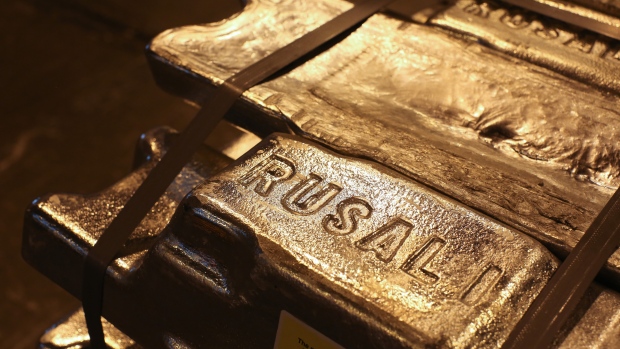Apr 16, 2018
Aluminum hits highest since 2011 as Rusal supply at risk
, Bloomberg News

Aluminum extended last week’s record gain, touching the highest in more than six and a half years in London as the market weighed the possibility that United Co. Rusal will be forced to cut production after being shut out of western markets.
Aluminum jumped 3.5 per cent to US$2,366 a ton as of 2:01 p.m. on the London Metal Exchange. It earlier touched US$2,377.50, the highest since September 2011. The metal rose 12 per cent last week after U.S. sanctions imposed on the Russian aluminum producer sent shock waves through the global metals supply chain.
Counterparties including Rio Tinto Group and Glencore Plc have already declared force majeure on some contracts following the sanctions and attention is now turning to the risk the Rusal will be forced to cut output, exacerbating a shortage seen in markets outside China.
“We have a potential scenario where U.S. and European markets will be shut off to Rusal, and they’ll be forced to redirect units to clients in other markets,” Nicholas Snowdon, a metals analyst at Deutsche Bank AG, said by phone from London. “Doing the maths, that’s going to pose significant challenges, and there’s clear potential that they’ll have to cut production.”
Rusal’s shares dropped 30 per cent in Hong Kong after losing more than half their value last week, as traders and analysts weighed the ongoing fallout from the sanctions. Rusal is likely to target sales in alternative markets across the Middle East, Turkey and China to make up for lost exports to western buyers, Morgan Stanley analyst Susan Bates said in an emailed note.
The future of the company’s alumina refineries in Ireland and Jamaica also has been cast into doubt as buyers seek alternative supplies, Bates said. Alumina, a key raw material in aluminum production, headed toward all-time highs last week as the sanctions exacerbated a supply squeeze sparked by production cuts at the world’s top alumina refinery in Brazil.
Aluminum stockpiles in LME warehouses rose 1.1 per cent Monday, adding to last week’s 6.7 per cent increase, as traders sought to deposit Rusal metal before a deadline after the bourse said it will stop accepting the sanctioned firm’s supplies.
Aluminum led metals higher on the LME on Monday. Nickel, the best-performing metal this year, headed for its best close since May 2015 as stockpiles continued to slump on the bourse. Copper added 0.8 per cent and zinc climbed 0.6 per cent.
--With assistance from Susanne Barton




